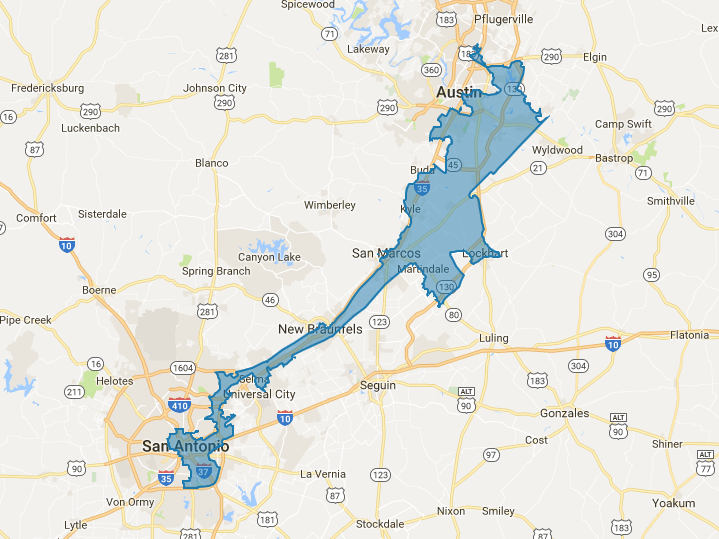Biden vs Trump 2020 - vote now and discuss!
Comments
-
Can you hold it up? Show me the back. What’s that little seam thread? It looks like it’ll unravel. Will it wash well? Shrink? You only have a small? But I need an XXL. I suppose I could lose weight. Does it come in red? No? Blue only. Hmmmmm. Do you have any posters? No? Why not? Once, I went to a show, and they had posters. It was a lamb or goat like looking guy. It’s still in the tube, I think? And another time I couldn’t get a poster but someone offered to send me one. It was for money mind you but when the tube arrived, it was full of air. And the worst part? I paid customs duty! How about stickers? Do you have any stickers?OnWis97 said:eeriepadave said:Got to the voting place at 7:30, felt like i was in line for PJ merchandise.
No posters (Bernie)? Fine, I'll get the hoodie (Warren)? Those are out too? No, I don't want any lame-ass wrist bands (Trump). Just give me the so-so t-shirt (Biden). It's not what I really wanted, but it'll do.09/15/1998 & 09/16/1998, Mansfield, MA; 08/29/00 08/30/00, Mansfield, MA; 07/02/03, 07/03/03, Mansfield, MA; 09/28/04, 09/29/04, Boston, MA; 09/22/05, Halifax, NS; 05/24/06, 05/25/06, Boston, MA; 07/22/06, 07/23/06, Gorge, WA; 06/27/2008, Hartford; 06/28/08, 06/30/08, Mansfield; 08/18/2009, O2, London, UK; 10/30/09, 10/31/09, Philadelphia, PA; 05/15/10, Hartford, CT; 05/17/10, Boston, MA; 05/20/10, 05/21/10, NY, NY; 06/22/10, Dublin, IRE; 06/23/10, Northern Ireland; 09/03/11, 09/04/11, Alpine Valley, WI; 09/11/11, 09/12/11, Toronto, Ont; 09/14/11, Ottawa, Ont; 09/15/11, Hamilton, Ont; 07/02/2012, Prague, Czech Republic; 07/04/2012 & 07/05/2012, Berlin, Germany; 07/07/2012, Stockholm, Sweden; 09/30/2012, Missoula, MT; 07/16/2013, London, Ont; 07/19/2013, Chicago, IL; 10/15/2013 & 10/16/2013, Worcester, MA; 10/21/2013 & 10/22/2013, Philadelphia, PA; 10/25/2013, Hartford, CT; 11/29/2013, Portland, OR; 11/30/2013, Spokane, WA; 12/04/2013, Vancouver, BC; 12/06/2013, Seattle, WA; 10/03/2014, St. Louis. MO; 10/22/2014, Denver, CO; 10/26/2015, New York, NY; 04/23/2016, New Orleans, LA; 04/28/2016 & 04/29/2016, Philadelphia, PA; 05/01/2016 & 05/02/2016, New York, NY; 05/08/2016, Ottawa, Ont.; 05/10/2016 & 05/12/2016, Toronto, Ont.; 08/05/2016 & 08/07/2016, Boston, MA; 08/20/2016 & 08/22/2016, Chicago, IL; 07/01/2018, Prague, Czech Republic; 07/03/2018, Krakow, Poland; 07/05/2018, Berlin, Germany; 09/02/2018 & 09/04/2018, Boston, MA; 09/08/2022, Toronto, Ont; 09/11/2022, New York, NY; 09/14/2022, Camden, NJ; 09/02/2023, St. Paul, MN; 05/04/2024 & 05/06/2024, Vancouver, BC; 05/10/2024, Portland, OR; 05/03/2025, New Orleans, LA;
Libtardaplorable©. And proud of it.
Brilliantati©0 -
BidenTimed it. From when I walked into vote to when I walked out, it took four minutes. God bless the folks that have to wait in lines. They’re fucking patriots.2000: Camden 1, 2003: Philly, State College, Camden 1, MSG 2, Hershey, 2004: Reading, 2005: Philly, 2006: Camden 1, 2, East Rutherford 1, 2007: Lollapalooza, 2008: Camden 1, Washington D.C., MSG 1, 2, 2009: Philly 1, 2, 3, 4, 2010: Bristol, MSG 2, 2011: PJ20 1, 2, 2012: Made In America, 2013: Brooklyn 2, Philly 2, 2014: Denver, 2015: Global Citizen Festival, 2016: Philly 2, Fenway 1, 2018: Fenway 1, 2, 2021: Sea. Hear. Now. 2022: Camden, 2024: Philly 2, 2025: Pittsburgh 1
Pearl Jam bootlegs:
http://wegotshit.blogspot.com0 -
09/15/1998 & 09/16/1998, Mansfield, MA; 08/29/00 08/30/00, Mansfield, MA; 07/02/03, 07/03/03, Mansfield, MA; 09/28/04, 09/29/04, Boston, MA; 09/22/05, Halifax, NS; 05/24/06, 05/25/06, Boston, MA; 07/22/06, 07/23/06, Gorge, WA; 06/27/2008, Hartford; 06/28/08, 06/30/08, Mansfield; 08/18/2009, O2, London, UK; 10/30/09, 10/31/09, Philadelphia, PA; 05/15/10, Hartford, CT; 05/17/10, Boston, MA; 05/20/10, 05/21/10, NY, NY; 06/22/10, Dublin, IRE; 06/23/10, Northern Ireland; 09/03/11, 09/04/11, Alpine Valley, WI; 09/11/11, 09/12/11, Toronto, Ont; 09/14/11, Ottawa, Ont; 09/15/11, Hamilton, Ont; 07/02/2012, Prague, Czech Republic; 07/04/2012 & 07/05/2012, Berlin, Germany; 07/07/2012, Stockholm, Sweden; 09/30/2012, Missoula, MT; 07/16/2013, London, Ont; 07/19/2013, Chicago, IL; 10/15/2013 & 10/16/2013, Worcester, MA; 10/21/2013 & 10/22/2013, Philadelphia, PA; 10/25/2013, Hartford, CT; 11/29/2013, Portland, OR; 11/30/2013, Spokane, WA; 12/04/2013, Vancouver, BC; 12/06/2013, Seattle, WA; 10/03/2014, St. Louis. MO; 10/22/2014, Denver, CO; 10/26/2015, New York, NY; 04/23/2016, New Orleans, LA; 04/28/2016 & 04/29/2016, Philadelphia, PA; 05/01/2016 & 05/02/2016, New York, NY; 05/08/2016, Ottawa, Ont.; 05/10/2016 & 05/12/2016, Toronto, Ont.; 08/05/2016 & 08/07/2016, Boston, MA; 08/20/2016 & 08/22/2016, Chicago, IL; 07/01/2018, Prague, Czech Republic; 07/03/2018, Krakow, Poland; 07/05/2018, Berlin, Germany; 09/02/2018 & 09/04/2018, Boston, MA; 09/08/2022, Toronto, Ont; 09/11/2022, New York, NY; 09/14/2022, Camden, NJ; 09/02/2023, St. Paul, MN; 05/04/2024 & 05/06/2024, Vancouver, BC; 05/10/2024, Portland, OR; 05/03/2025, New Orleans, LA;
Libtardaplorable©. And proud of it.
Brilliantati©0 -
I'm sitting this one out
Or just reasonable people, believing in democracy.Ledbetterman10 said:Timed it. From when I walked into vote to when I walked out, it took four minutes. God bless the folks that have to wait in lines. They’re fucking patriots."Mostly I think that people react sensitively because they know you’ve got a point"0 -
Biden
Some people wait for hours on end.Spiritual_Chaos said:
Or just reasonable people, believing in democracy.Ledbetterman10 said:Timed it. From when I walked into vote to when I walked out, it took four minutes. God bless the folks that have to wait in lines. They’re fucking patriots.2000: Camden 1, 2003: Philly, State College, Camden 1, MSG 2, Hershey, 2004: Reading, 2005: Philly, 2006: Camden 1, 2, East Rutherford 1, 2007: Lollapalooza, 2008: Camden 1, Washington D.C., MSG 1, 2, 2009: Philly 1, 2, 3, 4, 2010: Bristol, MSG 2, 2011: PJ20 1, 2, 2012: Made In America, 2013: Brooklyn 2, Philly 2, 2014: Denver, 2015: Global Citizen Festival, 2016: Philly 2, Fenway 1, 2018: Fenway 1, 2, 2021: Sea. Hear. Now. 2022: Camden, 2024: Philly 2, 2025: Pittsburgh 1
Pearl Jam bootlegs:
http://wegotshit.blogspot.com0 -
I'm sitting this one out
I know. I watch Last Week Tonight.Ledbetterman10 said:
Some people wait for hours on end.Spiritual_Chaos said:
Or just reasonable people, believing in democracy.Ledbetterman10 said:Timed it. From when I walked into vote to when I walked out, it took four minutes. God bless the folks that have to wait in lines. They’re fucking patriots.
Post edited by Spiritual_Chaos on"Mostly I think that people react sensitively because they know you’ve got a point"0 -
Biden
Voting today will go quicker than early voting. Early voting is normally only available at a limited number of locations. For my county, there were two locations, both at the Registar's office in eastern and western parts of the county. By contrast, schools are used heavily for day of voting. Schools are closed for classes on election day every year here. So the locations are limited for early voting, but widespread for day of voting.Spiritual_Chaos said:
I know. I watch Last Week Tonight.Ledbetterman10 said:
Some people wait for hours on end.Spiritual_Chaos said:
Or just reasonable people, believing in democracy.Ledbetterman10 said:Timed it. From when I walked into vote to when I walked out, it took four minutes. God bless the folks that have to wait in lines. They’re fucking patriots. 0
0 -
I'm sitting this one out

"Mostly I think that people react sensitively because they know you’ve got a point"0 -
I'm sitting this one outWhat time expected they will announce that Biden won?"...Dimitri...He talks to me...'.."The Ghost of Greece..".
"..That's One Happy Fuckin Ghost.."
“..That came up on the Pillow Case...This is for the Greek, With Our Apologies.....”0 -
10pm eastern time to 3 weeks from now....dimitrispearljam said:What time expected they will announce that Biden won?0 -
I feel like those are very conservative numbers on their part. If they are close to that there is no way TX is going blue.Spiritual_Chaos said: 0
0 -
I'm sitting this one out
Shit. 3 weeks?PJNB said:
10pm eastern time to 3 weeks from now....dimitrispearljam said:What time expected they will announce that Biden won?
Do they need mathematicians from Greece to do the counting there?"...Dimitri...He talks to me...'.."The Ghost of Greece..".
"..That's One Happy Fuckin Ghost.."
“..That came up on the Pillow Case...This is for the Greek, With Our Apologies.....”0 -
I think they can count fine lol just the fact that things could possibly go to the courts if it is close and whether mail in ballots thrown out or not in states like PA.dimitrispearljam said:
Shit. 3 weeks?PJNB said:
10pm eastern time to 3 weeks from now....dimitrispearljam said:What time expected they will announce that Biden won?
Do they need mathematicians from Greece to do the counting there?0 -
I'm sitting this one out
Fuck, will be a clusterfuckPJNB said:
I think they can count fine lol just the fact that things could possibly go to the courts if it is close and whether mail in ballots thrown out or not in states like PA.dimitrispearljam said:
Shit. 3 weeks?PJNB said:
10pm eastern time to 3 weeks from now....dimitrispearljam said:What time expected they will announce that Biden won?
Do they need mathematicians from Greece to do the counting there?"...Dimitri...He talks to me...'.."The Ghost of Greece..".
"..That's One Happy Fuckin Ghost.."
“..That came up on the Pillow Case...This is for the Greek, With Our Apologies.....”0 -
Hoping not. If Florida goes blue tonight it is pretty much over. If it is red and Arizona/North Carolina is too close to call then we have to wait. Also Wisconsin will be late in declaring a winner which makes things more interesting though it is very likely to go blue. Pennsylvania is going to be late tallying votes so if it comes down to that watch out.dimitrispearljam said:
Fuck, will be a clusterfuckPJNB said:
I think they can count fine lol just the fact that things could possibly go to the courts if it is close and whether mail in ballots thrown out or not in states like PA.dimitrispearljam said:
Shit. 3 weeks?PJNB said:
10pm eastern time to 3 weeks from now....dimitrispearljam said:What time expected they will announce that Biden won?
Do they need mathematicians from Greece to do the counting there?Post edited by PJNB on0 -
Biden
Outside it's Americadimitrispearljam said:
Fuck, will be a clusterfuckPJNB said:
I think they can count fine lol just the fact that things could possibly go to the courts if it is close and whether mail in ballots thrown out or not in states like PA.dimitrispearljam said:
Shit. 3 weeks?PJNB said:
10pm eastern time to 3 weeks from now....dimitrispearljam said:What time expected they will announce that Biden won?
Do they need mathematicians from Greece to do the counting there?___________________________________________
"...I changed by not changing at all..."0 -
I'm sitting this one outHaving this on in the background while finishing off work
 https://youtu.be/z1Onj-7b8Q4
https://youtu.be/z1Onj-7b8Q4
"Mostly I think that people react sensitively because they know you’ve got a point"0 -

This is great news for Biden and maybe what tips the scales in his favour in FL and gets him an early win tonight.0 -
I'm sitting this one outThe Juggler said:Democracy....set to make a comeback today.

Maybe taking its first steps."Mostly I think that people react sensitively because they know you’ve got a point"0 -

This is my final conservative guess. You can swap out PA with one of the following FL,NC,GA,AZ and longshots OH/TX and it is still the same outcome being a Biden win. Trump has to run the gauntlet on those states and win PA to pull it off. Also Biden has to hold Mi,NV, and WI of course but if he is not holding those two he is fucked anyways as the dominoes will fall red like they did in 2016.Post edited by PJNB on0
Categories
- All Categories
- 149.2K Pearl Jam's Music and Activism
- 110.3K The Porch
- 287 Vitalogy
- 35.1K Given To Fly (live)
- 3.5K Words and Music...Communication
- 39.4K Flea Market
- 39.4K Lost Dogs
- 58.7K Not Pearl Jam's Music
- 10.6K Musicians and Gearheads
- 29.1K Other Music
- 17.8K Poetry, Prose, Music & Art
- 1.1K The Art Wall
- 56.8K Non-Pearl Jam Discussion
- 22.2K A Moving Train
- 31.7K All Encompassing Trip
- 2.9K Technical Stuff and Help





